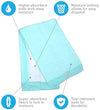
As the United States ages, the number of seniors in this country will reach an all time high. This number grows everyday and is expected to grow in future years. The increase in the senior population and the growing life expectancy rate will create many drastic changes in the United States. This aging population will affect many aspects of business and in general will have a major impact on how this country operates.
One of the many major changes that will occur will be the demand of healthcare care labor. More aging seniors means a higher demand for health care workers. These seniors will need more help and this could create a problem. Future laws will most likely enforce more regulations and make the process for becoming a healthcare agent harder or more ‘official’. One of the problems with home healthcare is that the workers aren’t always as educated as nurses. Home healthcare workers will most likely face more regulations in the future which could lean people away from becoming a health related worker. As demand for these workers increases, the United States will need more healthcare workers, not less. As of now, the United States population aged sixty-five or older is fifteen percent. This number will skyrocket in years to come and the overall number will also increase, affecting the population dynamics in this country. With politics being an issue in this country, future health insurance and models of care may change the way we care for our seniors in a major way. If the president’s health care bill passes, more than twenty-two million Americans may not have insurance, including many seniors. What will this country do with aging, uninsured seniors? That is a major question facing not only political leaders, but the majority of the United States. Another emerging topic is the fact that the aging population is more diverse than ever. As of now, the majority of doctors are white or Asian. The emerging senior population is increasingly Hispanic and this country will need more healthcare agents that are bilingual to help the more diverse senior population. The baby boomers are also more successful than past groups of seniors in the country because of an increase in health, education, and income in their lifetimes. This means that many more seniors will be able to afford home healthcare or other types of services which will again affect the healthcare force in a major way. Their generations putting an abundance of pressure on younger generation to take care of them, and it may work. At least eighty percent of seniors have one chronic condition, which means that the vast majority of seniors use and will continue to use doctors and a form of healthcare. There are increasing number of options for this generation of seniors to take, but which one will they take? We can only predict for now.

















Comments